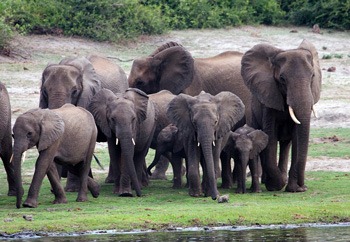Animal Rights and Wrongs
Two events are happening this month that capture, in one case, what is right about animal advocacy today and, in the other, what is wrong.
For the first time ever, today, December 2nd, an animal rights organization, the Nonhuman Rights Project, has gone to court on behalf of a nonhuman animal, asking a judge to recognize him as a “legal person” who has the fundamental right to bodily liberty.
Later this month, the 2013 Biennial Marine Mammal Conference in New Zealand and the Society for Marine Mammalogy (SMM) Ethics Committee will be hosting a special session on the humane killing of marine mammals. The committee states that these are “complex technical, ethical and cultural issues” and there will be an expert panel with the capacity to represent a diversity of viewpoints.
One of these two events represents a potentially transformative effort towards actual enforceable rights for nonhuman beings, and the other represents a fall back to the ethical muck and mire and perpetuation of nonhuman animals as commodities.
One effort says that there is no question about the fundamental nature of nonhuman beings as individuals with a right to live their lives autonomously. The other continues to equivocate on this question, suggesting there is some room for differing viewpoints on the issue of whether marine mammals, such as dolphins and whales, even have a right to life.
The fact that the words “ethical” and “killing” can even be spoken in the same breath about marine mammals reinforces how sorely we need enforceable rights for them.
The fact that the words “ethical” and “killing” can even be spoken in the same breath about marine mammals reinforces how sorely we need enforceable rights for them.
Precisely because the premier marine mammal organization in the world thinks it is worthwhile to spend time considering how to kill marine mammals is why we need enforceable rights for them.
By conceding that there is such a thing as “humane” killing of marine mammals and that this issue is “sensitive”, the SMM undermines any credibility it might have as an organization that takes the science of marine mammal intelligence seriously. If it actually did, then the very notion of killing autonomous individuals who have a sense of self, can think about their own thoughts, possess sophisticated memory and communicative capacities, and, in their own habitats, develop varied cultures, would be unthinkable.
The SMM continues to hide in the conservative shadow land of concepts like “management” and “conservation” with no acknowledgement of the individuality and inherent value of the nonhuman beings in their purview. I understand why the SMM, as a global organization, takes the tactic of incrementalism, careful not to offend any of its constituents. It is what an organization does when it has become the reason for its own existence.
But none of the marine mammals being killed every year in Taiji, Japan or in the Faroe Islands, or in captivity can afford the time it takes for the long, slow creep of “progress” defined by the SMM and other organizations who refuse to take a real stand.
Thankfully there are some efforts, like the Nonhuman Rights Project, that represent the vanguard of animal advocacy and recognize the parity across all rights issues – human and nonhuman.
Martin Luther King said: “There comes a time when one must take a position that is neither safe, nor politic, nor popular, but he must take it because conscience tells him it is right.”
Here’s hoping for more animal rights and fewer animal wrongs in 2014.


